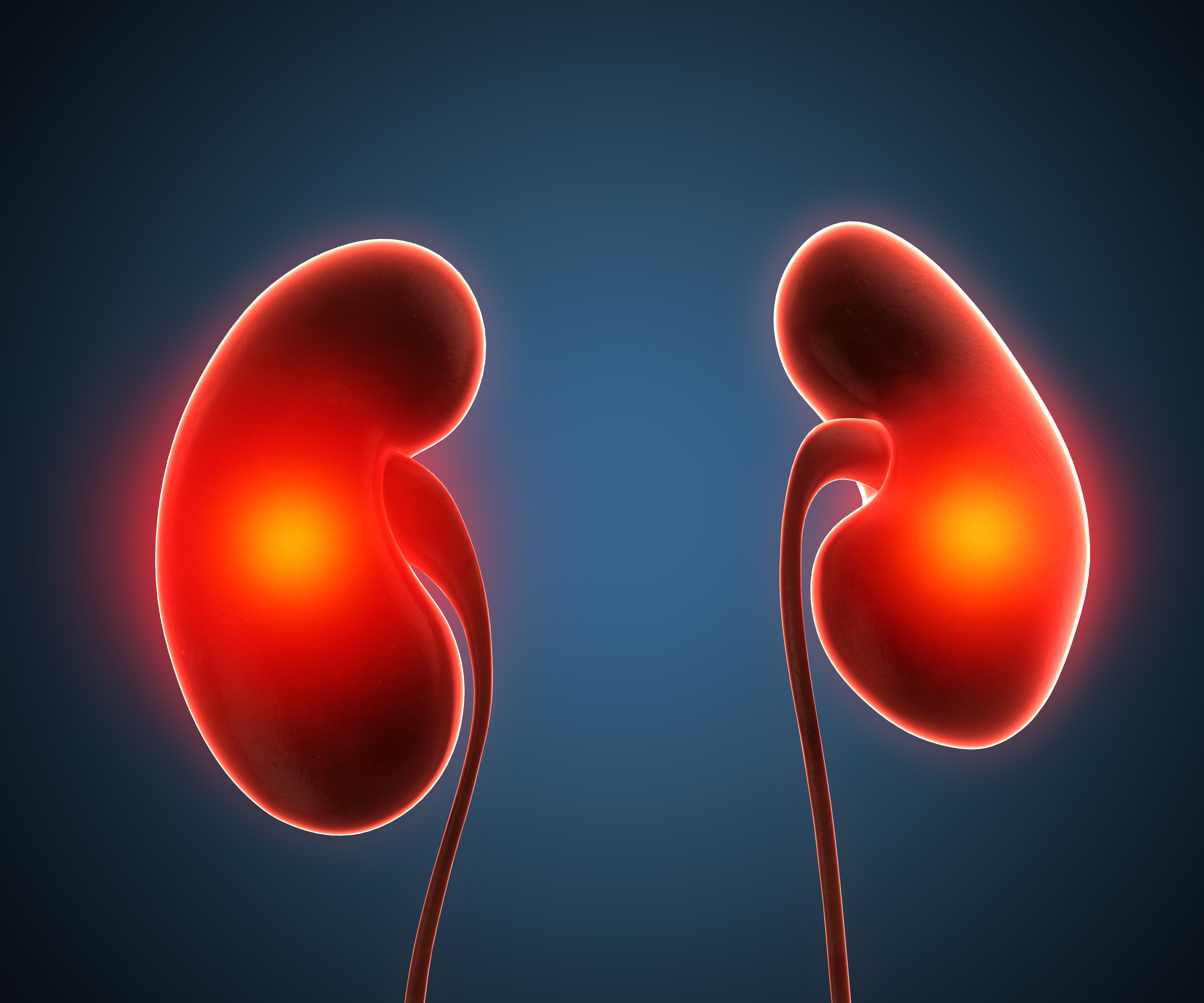News
Article
David Kavanagh, MBChB, PhD: Iptacopan Offers Hope for C3 Glomerulopathy
Author(s):
A Q&A with David Kavanagh, MBChB, PhD, on the results of the APPEAR-C3G trial and implications for care moving forward.
David Kavanagh, MBChB, PhD
Credit: NHS Foundation Trust

New data from the 61st European Renal Association Congress (ERA 24) suggests the nephrology community may soon see its first FDA-approved therapy for C3 glomerulopathy (C3G).
Results from the APPEAR-C3G trial, which assessed use of iptacopan relative to placebo therapy, concluded use of the oral factor B inhibitor was associated with a 35.1% reduction in proteinuria among patients with C3G, with Novartis announcing plans to use these data as part of a regulatory submission before the close of 2024.1
“Fabhalta is the first potential treatment that targets the alternative complement pathway in C3G, and its impact on measures of kidney damage and kidney function in this study, in addition to its safety profile, is encouraging for patients and the clinical community,” said lead investigator David Kavanagh, MBChB, PhD professor of Complement Therapeutics and Honorary Consultant Nephrologist at the Faculty of Medical Sciences at Newcastle University.2
APPEAR-C3G was a phase 3 trial initiated in 2021 as a multicenter, randomized, double-blind, parallel-group, placebo-controlled study aimed at evaluating the efficacy, safety, and tolerability of iptacopan compared to placebo in patients with C3G Eligibility criteria required patients to have serum C3 levels below 77 mg/dL, a 24-hour urine protein to creatinine ratio (UPCR) of 1.0 g/g or higher, and an eGFR of at least 30 mL/min/1.73m².1,2,3
The trial screened 132 patients and enrolled 74, who were randomly assigned in a 1:1 ratio to receive either 200 mg of iptacopan twice daily or a placebo. Of these, 38 were given iptacopan and 36 received the placebo. According to the trial protocol, patients could continue using mycophenolic acids, low-dose corticosteroids, SGLT2 inhibitors, and mineralocorticoid receptor antagonists if they had been stable on these medications for 90 days or more prior to randomization.1
The primary outcome measure was the change in proteinuria, as indicated by the 24-hour UPCR, from baseline to 6 months. Secondary endpoints included changes in eGFR and a composite renal outcome, defined as a 50% or greater reduction in UPCR combined with a reduction in eGFR of 15% or less over 6 months compared to placebo.1
The results showed that the trial met its primary endpoint, with iptacopan use leading to a significant 35% reduction in proteinuria at 6 months compared to placebo (35.1%; 95% CI, 13.8 to 51.1; nominal 1-sided P = .0014). Secondary endpoint analysis indicated a seven-fold increase in the likelihood of achieving the composite kidney outcome with iptacopan relative to placebo (OR, 7.145; 95% CI, 1.429 to 35.723; nominal 1-sided P = .0083). Additionally, iptacopan use was linked to a numerical improvement of 2.2 mL/min/1.73 m² in eGFR over 6 months compared to placebo (P = .1945).1
Further analysis of secondary outcomes of interest suggested iptacopan significantly increased serum C3 levels by 185%, reduced alternative complement pathway activity by 37.3%, decreased plasma sC5b-9 by 65.1%, and lowered urinary sC5b9/creatine by 77.3% at 6 months (nominal 1-sided P for all <.001).1
For more on the trial, check out this Q&A with Kavanagh.
HCPLive: Can you describe the significance of these findings?
Kavanagh: So, these are incredibly exciting results for patients. Up until now, we have no proven therapy for this disease. And today, at the era, we're going to reveal the first positive phase three data and see three glomerulopathy.
HCPLive: What does this mean for a patient with C3 glomerulopathy in terms of the progression of their disease course?
Kavanagh: So, because these are ultra-rare diseases, they're very difficult trials to do. Classically, you use proteinuria as a surrogate marker of disease progression. So, a 30 or more than 30% decrease in proteinuria, is really both statistically significant and really clinically meaningful for patients.
Now, 1 of the other secondary endpoints that was predefined was to look at the rate of progression because, clearly, these are short term trials and small numbers of patients so looking at patients progressing to end stage renal failure, as an outcome is not possible in these trials. What we did in this trial is look at the rate of progression based in EGFR for the preceding couple of years what we could see as iptacopan was started, that progression completely plateaued.
HCPLive: How much will this shift the management of C3 glomerulopathy, if the agent were to be approved?
Kavanagh: I think this is a new era and the treatment of complement-mediated diseases. For many years, we haven't been able to talk at the source of C three G, and now we have a targeted therapy that treats disease by inhibiting the alternate pathway of complement.
HCPLive: What are the next steps in research for this agent?
Kavanagh: So, 1 of the big questions is know how long do we need to carry these agents on for these are traditionally thought of as chronic diseases and, because of that, you would imagine that treatment will be for a substantial period of time. Now, if it's a genetic abnormality underlying, that could be lifelong. However, if it is an autoimmune cause, such as a nephritic factor, with the better B-cell depleting agents coming through, it may be possible to completely remove these in the future. So, patients will not require long-term treatment.
References:
- Kavanagh D, Bomback A, Vivarelli M, et al. Efficacy and safety of iptacopan in patients with C3 glomerulopathy: results from the Phase 3 APPEAR-C3G trial. Abstract presented at 61st European Renal Association Congress. Stockholm, Sweden. May 23-26, 2024.
- Novartis. Novartis presents latest phase III Fabhalta® (iptacopan) data in C3 glomerulopathy (C3G) showing clinically meaningful and statistically significant 35.1% proteinuria reduction vs. placebo. Novartis. May 25, 2024. Accessed May 26, 2024. https://www.novartis.com/news/media-releases/novartis-presents-latest-phase-iii-fabhalta-iptacopan-data-c3-glomerulopathy-c3g-showing-clinically-meaningful-and-statistically-significant-351-proteinuria-reduction-vs-placebo.
- ClinicalTrials.gov. Study of efficacy and safety of Iptacopan in patients with C3 glomerulopathy. - full text view. ClinicalTrials.gov. March 26, 2021. Accessed May 26, 2024. https://classic.clinicaltrials.gov/ct2/show/NCT04817618.





